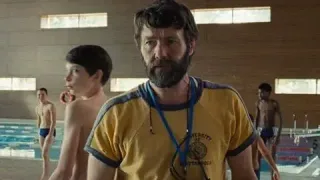May 16, 2017
Our Future: The Youth Movement and Why Context Matters
Kyle Mangione-Smith READ TIME: 5 MIN.
My roommate for my previous year, who we'll call John, was staunchly conservative, which given the intensely left leaning nature of my school was certainly unusual. I certainly had my concerns when I saw I'd been paired with him at the start of the year, seeing how in recent times many young conservatives in America have taken up a form of radical politics that's certainly more concerning than simply wanting lower taxes and small government. Regardless, John ended up being the closet friend I made throughout the year. Anyone who's read nearly anything I've written knows I'm a passionate leftist, the type that you hear news outlets dragging through the mud for supposedly wanting to silence free speech and destroy democracy. But I've never hated John for his politics. Certainly annoyed or frustrated at times, as we definitely did not shy away from the occasional political debates, but never at any point did I feel any sort of malice towards him.
More than anything I tried to approach him from a place of understanding: he was a straight white boy from a very wealthy family in California. That's not to say I hold any of those things against him, but he simply doesn't have the exposure and experience to understand the full context and implications of his politics. His world exists primarily within a bubble of people that don't need institutions to protect them. John would not infrequently say things that were certainly off color and would put him on the proverbial stake with most of the other students at my school; yet rather than see it as reason to cut him off, I tried to use these opportunities to educate. Because when it comes down to it, he's a very caring and generous guy, and more than anything many of his beliefs stem from a place of ignorance.
Near the end of last semester, a thread got posted on Facebook by one of our fellow students that was supposedly outing a group of "white supremacists" on campus they'd discovered through Facebook. As you could likely guess, John was among them. One of the few other conservatives in our grade had posted a photo of her with Milo Yiannopoulos, which as a fellow fan John responded to gleefully. The thread continued on and grew to the point that our school president found it necessary to intervene, and suddenly it was the talk of campus.
Now I certainly don't believe Milo is someone that really anyone, especially young people, should look up to, yet knowing John on a personal level I could understand why he does. But as I (and anyone who knows John can tell you), the idea that his idolization comes from a place of "white supremacy" is absurd. As for the people who had started the call out post, none of them had even met him, or any of the other students they were outing for that matter. Despite its reputation, I have certainly met some genuinely dangerous, racist, right wing people at my school -- people who should be taken as a serious threat. John is not one of them.
But I think in many ways this incident was indicative of a greater problem present in the burgeoning leftist movement among young people, which is the glossing over of context. There is not one unified demographic of young people that looks up to Milo, or Trump, or that reads Brietbart. They're dumb rich white kids from San Diego, and they're traditional young conservatives that are simply following popular tides; and they're reclusive image board lurking fascists, and they're genuine white supremacists. To say that all those groups pose the same threat would be absurd.
It doesn't matter that they all support the same cause, because the expansive set of influences that lead them to come to those conclusions are so vastly different that their actual motives and beliefs are incomparable. Approaching and dealing with one group the same way you would another would be ridiculous.
It's undeniable that white supremacist and fascist political ideology has made major strides towards the mainstream in the last year, and yet the fact that such beliefs can now be considered mainstream to an extent is more important to consider than ever. Young people are being exposed to radical and dangerous right wing philosophy in a way that hasn't occurred in decades in America, and many of them only cling to such ideas because they don't know any better. Most of them have just as much capacity for empathy and nuance as anyone else, and simply because their status fail to see the harm their politics can cause. Understanding this is absolutely essential if we wish to deal with the new right in a meaningful way.
Kyle Mangione-Smith is a filmmaker and student living in Boston.






